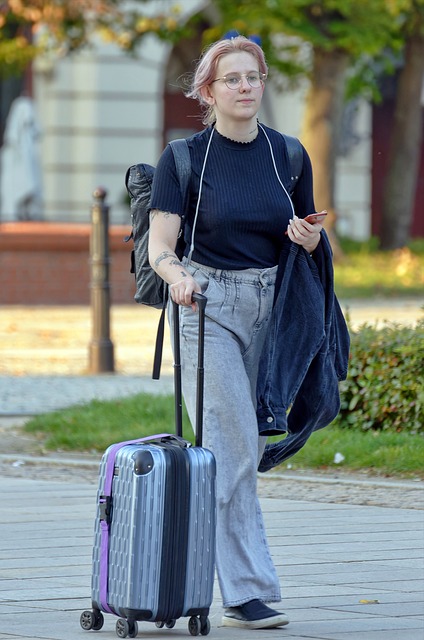Studying in the UK offers a fantastic academic and cultural experience, but finding the right accommodation is crucial for a smooth transition. For Indian students, understanding the various accommodation options, rental costs, and what to expect can make a significant difference in their study abroad journey. This guide provides an overview of accommodation types, costs, and tips for securing a place to live in the UK. Please go through this guide to Accommodations in the UK for Indian students.
1. Types of Accommodations
1.1 University Halls of Residence
- Overview: University halls of residence are on-campus accommodations managed by the university. They offer a convenient option for students to live close to their classes.
- Features: Furnished rooms, shared or private bathrooms, and access to communal areas like kitchens and lounges. Some halls include utilities and internet in the rent.
- Pros: Close proximity to university facilities, inclusive of utilities, and easy to meet fellow students.
- Cons: Limited privacy and higher demand for popular halls.
- Average Rent: £400 – £800 per month.
1.2 Private Student Accommodation
- Overview: These are purpose-built student residences managed by private companies. They are located near university campuses and cater specifically to students.
- Features: En-suite rooms, studio apartments, or shared flats with amenities such as gyms, study rooms, and social spaces.
- Pros: Modern facilities, flexible lease terms, and social events organized by the accommodation provider.
- Cons: Often more expensive than university halls.
- Average Rent: £500 – £1,000 per month.
1.3 Shared Flats/Houses
- Overview: Renting a room in a shared flat or house with other students or professionals. These are usually private rentals managed by landlords or letting agents.
- Features: Shared common areas like kitchens and living rooms, with individual or shared bedrooms.
- Pros: More independence and potentially lower costs than private student accommodation.
- Cons: Varying standards of living conditions, and responsibilities for bills and upkeep.
- Average Rent: £300 – £700 per month.
1.4 Private Rentals (Studio Apartments)
- Overview: Studio apartments are self-contained units with a living area, bedroom, and kitchen. They offer more privacy and independence.
- Features: Private kitchen and bathroom, usually furnished.
- Pros: Complete privacy and personal space, ideal for those preferring solitude.
- Cons: Higher cost compared to shared options and university halls.
- Average Rent: £600 – £1,200 per month.
1.5 Homestays
- Overview: Living with a local family, which can provide an immersive cultural experience and additional support.
- Features: Private room, sometimes with meals included, and the chance to practice English in a home setting.
- Pros: Cultural immersion, support from host family, and potentially inclusive of meals.
- Cons: Less independence and varying levels of privacy.
- Average Rent: £500 – £800 per month (may include meals).

2. Rental Costs by Location
2.1 London
- Overview: London has the highest accommodation costs, reflecting its status as a major international city.
- Average Costs:
- University Halls: £600 – £1,000 per month
- Private Student Accommodation: £700 – £1,200 per month
- Shared Flats: £500 – £900 per month
- Studio Apartments: £800 – £1,500 per month
2.2 Manchester
- Overview: Known for its vibrant student life, Manchester offers more affordable options compared to London.
- Average Costs:
- University Halls: £400 – £700 per month
- Private Student Accommodation: £500 – £800 per month
- Shared Flats: £350 – £600 per month
- Studio Apartments: £500 – £900 per month
2.3 Edinburgh
- Overview: Edinburgh offers a mix of historical charm and student-friendly accommodations.
- Average Costs:
- University Halls: £350 – £650 per month
- Private Student Accommodation: £450 – £750 per month
- Shared Flats: £300 – £550 per month
- Studio Apartments: £450 – £850 per month
2.4 Birmingham
- Overview: As a major city with several universities, Birmingham provides a range of accommodation options at relatively affordable prices.
- Average Costs:
- University Halls: £400 – £700 per month
- Private Student Accommodation: £500 – £800 per month
- Shared Flats: £350 – £600 per month
- Studio Apartments: £450 – £850 per month
3. Tips for Finding Accommodation
3.1 Start Early: Begin your search well before your course starts to ensure you have plenty of options.
3.2 Use University Resources: Many universities offer accommodation advice, lists of recommended landlords, and links to student accommodation services.
3.3 Check Reviews: Look for reviews of both accommodation providers and specific properties to gauge the quality and reliability.
3.4 Consider Location: Choose a location that balances cost with proximity to your university. Factor in transportation costs and commute times.
3.5 Understand Your Contract: Read rental agreements carefully, especially regarding deposits, maintenance responsibilities, and notice periods.
3.6 Visit if Possible: If you can, visit potential accommodations before committing to ensure it meets your expectations.
However, there are a number of websites where you can find good accommodation.
4. Conclusion
Finding the right accommodation is a key part of studying abroad. Firstly, with a range of options available, from university halls to private rentals, Indian students can choose an accommodation that suits their budget, preferences, and lifestyle. Moreover, by starting your search early and using the resources available, you can easily find a comfortable and affordable place to live while pursuing your studies in the UK. Ultimately, planning ahead ensures you have the best possible living experience during your academic journey.
This post is sponsored by Twin Infosys Ltd, UK